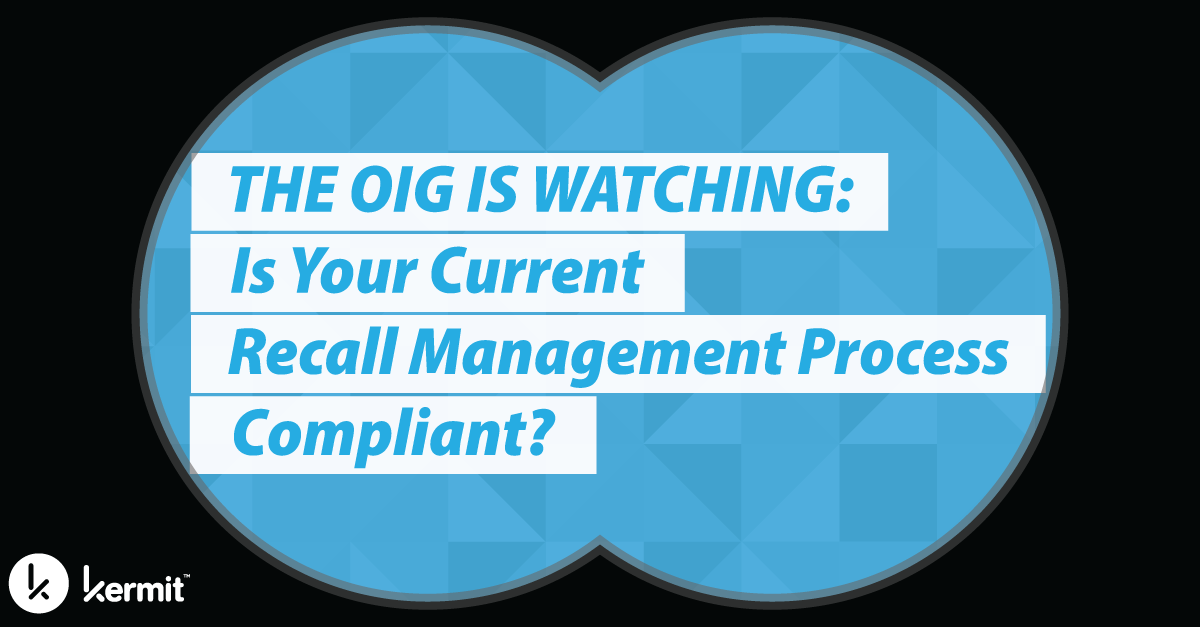In November 2020, the Office of Inspector General (OIG) issued the report titled “Hospitals Did Not Comply with Medicare Requirements for Reporting Cardiac Device Credits” which showed that hospitals failed to issue refunds to Medicare for previously paid claims that were subject to a recall and manufacturer credit. Centers for Medicare and Medicaid Services (CMS) requires hospitals to refund payments for claims where devices are recalled and credits are issued. The OIG found a 49% error rate during their audit totaling $33 million in overpayments to 911 hospitals.
The hospitals mentioned in the report are required to issue a refund to Medicare –a previously unbudgeted expense that could potentially place financial strain on many hospitals. Of additional concern is that “making the list” just put a spotlight on any future activity from these facilities. Clearly, hospital supply chain and risk management departments need to build mechanisms for tracking manufacturer credits and issuing refunds to CMS.
If you were not one of the lucky 911 facilities on the list, what does this mean for you?
Your recall management process will also be under scrutiny
The findings by the OIG were staggering. Of the 6,558 Medicare claims they reviewed, 3,233 (49%) were flagged as potentially noncompliant. You can bet that the OIG has compiled other lists they are looking into, as is CMS.
Hospital leadership should be preparing for the investigation to reach them. Taking time now to examine your recall management process seems prudent given the attention that CMS and the OIG are placing on this item. While it may not absolve you from any past overbillings, showing that your organization is proactively addressing the issue bolsters the optics of your current compliance initiatives.
What else did the OIG recommend to CMS?
At the completion of their investigation, the OIG recommended several actions to CMS to recover past overpayments and to prevent future provider overpayments.
A few of the more impactful recommendations include:
- Instructing Medicare contractors to recover the portion of the $33 million in identified Medicare overpayments that are within the reopening period;
- Instructing Medicare contractors to implement a post-payment review process;
- Obtaining device credit listings from manufacturers and determine whether providers reported credits as required, and;
- Directing Medicare contractors to determine whether hospitals, which we have identified as having billed incorrectly in both this audit and our prior audits, have engaged in a pattern of incorrect billing after this audit period and if so, take appropriate action in accordance with CMS policies and procedures.
Consider a third-party specialist to help manage recalls
Managing implant recalls can be complicated for a multitude of different reasons. The implant world is highly complex when it comes to tracking products with their own proprietary SKUs, lot numbers, and serial numbers. With hundreds of manufacturers across dozens of surgical divisions, the sheer volume of data and attributes that need to be tracked is daunting and easily totals in the millions of unique products.
However, third party approaches and applications custom-built for this task exist. A strategy to fold a tech-enabled process in now will provide confidence that this pile of smoldering embers does not become a raging fire to contend with. Ensure that the approach you chose has the capability to monitor recalls, match the product usage to specific patients and facilities, and issue alerts to your team with detailed corrective recommendations.
How Kermit can help manage your recalls
Kermit’s Recall Tracking module not only actively reports product recalls, but also tracks the patients who have these devices implanted. For example, Kermit provided a list of patients impacted by a Class I recall of ICD and CRT-D devices for premature battery depletion to its hospital clients within minutes of the recall being published.
Kermit’s recall module combines real-time feeds from the FDA recall database with Kermit’s digitized implant case history. Kermit pairs its powerful technology with subject matter experts to review, inform and present data to hospital supply chain and risk management teams.
Want to learn more about how you can leverage Kermit’s bill-only solution and the associated recall module? Fill out the form below to get one-on-one consultation and learn more about the Kermit software and services.

